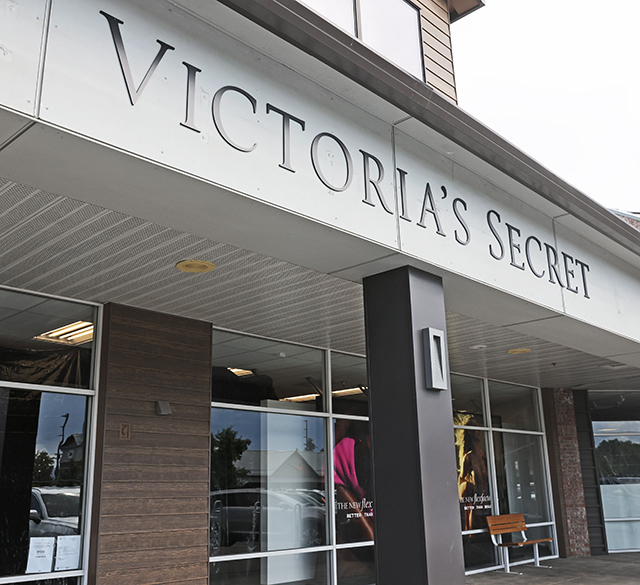Women’s basketball shoes often aren’t made for women. This company is changing that.
Published 1:38 pm Thursday, June 8, 2023
Natalie White had tried everything. She’d gone from bank to bank, from start-up accelerator to start-up accelerator, hoping to sell her idea to someone who would listen.
After decades of playing basketball, including time spent as the student manager of the women’s team at Boston College, she discovered that the shoes she and her teammates were wearing often weren’t designed with their needs in mind. While larger brands such as Nike, Under Armour and Adidas had labeled some of their basketball shoes as women’s, White’s research showed that many of those models were based on the mold of a male foot and disguised with a traditionally feminine colorway.
Trending
The byproduct, White found, was a higher injury risk for female athletes because men’s basketball shoes weren’t built for women’s feet, which are typically more narrow and have higher arches. White’s solution was to found a new basketball shoe brand, which she called Moolah Kicks, built by and for women.
But her early pitches were greeted by a mixture of doubt and disbelief. Some potential investors said her projections were too ambitious and the cost was too high. Others said they didn’t believe a viable market existed for a woman-specific basketball shoe.
White stayed optimistic, telling herself: “It’s OK. The people that don’t get it don’t have to.”
So White turned to her inner circle for support. In 2020, she rallied “almost every teammate that I had played with” — some 40 people — to gather in a Brooklyn park for a last-minute crowdfunding video campaign.
Within weeks of the video’s release, Moolah Kicks had netted more than $30,000 in presales. The company would eventually catch the attention of billionaire investor Mark Cuban as well as Dick’s Sporting Goods, which carries the shoe in roughly 500 stores nationwide.
Moolah Kicks has penetrated the market at nearly every level of play, securing an endorsement deal with Chicago Sky guard Courtney Williams and numerous NIL deals with Division I athletes, including Connecticut’s Caroline Ducharme. It partnered with Microsoft Surface to produce a commercial that appeared during the NCAA tournament.
Trending
“It’s kind of crazy that for so many years we’ve been expected to utilize and thrive in shoes that aren’t even built for us,” Williams said.
“So with Moolah being for women, like, why wouldn’t I want to rock with people that are rocking with me and my comfort.”
Best on the market
For White — and the women who have supported her and her company — Moolah Kicks isn’t just about building an attractive shoe, but also about giving female athletes the fairness and representation they are so often denied. Over the years, female athletes have advocated for paid parental leave, an end to gender pay disparities, greater representation in the coaching ranks and a deeper investment in the overall packaging of women’s athletics. The actual sporting equipment was another issue.
It wasn’t until White started in her role as team manager at Boston College that she came to realize that women’s basketball players’ relationships with their shoes were often vastly different from that of their male counterparts.
Most shoes require a brief break-in process, but for women wearing shoes built for men, that process took longer.
Even after the shoes were broken in, female players often reported their feet would slide around in the shoe and they would feel burning sensations on the tops and sides of their feet — something men did not regularly experience.
Using female-specific running shoes as a guide, White and her team were able to study the subtle differences in shape and build and then add the necessary intricacies of a good basketball shoe.
They looked at traction, the fit of the shoe’s sole, how dense or light the materials should be, breathability, stability and ankle support. An early version of the shoe left little room for ankle braces, which players asked for after wearing Moolah Kicks, so White’s team adjusted.
After 18 months of work, the end product was a women’s basketball shoe with a higher arch, a slimmer width and shallower spacing between the top of the foot and the top of the shoe.
“We put women’s basketball first,” White said. “That’s all we do. That’s all we care about.”
According to Ray Solano, the chiropractic sports physician for Georgetown and Howard basketball, addressing women’s needs within the basketball shoe industry is long overdue.
“I think it’s a great development, because as it stands women lack that specificity that they need in supporting their feet,” Solano said. “A lot of them just wear the men’s shoe, and that just isn’t enough. … With a male shoe typically being built a bit wider, it allows the typical woman’s foot to spread out a bit too much, and that can cause blisters on the inside of the foot as well as instability when they jump or plant.
“Like, just forget about the men and women aspect for a second,” he added. “Any time something can be tailored more to a foot that more closely resembles its owner, it’s going to be advantageous.”
While Moolah Kicks has experienced an impressive rise in its first few years, having a consistent seat at the basketball shoe table remains a work in progress. Despite its NIL deals with college players, finding a way to consistently showcase the shoes on the court is nearly impossible because every Division I program has on-court merchandising deals with one of the big brands. As a part of those deals, players are usually required to wear whichever brand their school is affiliated with during games.
Theoretically, outfitting members of the WNBA is a slightly easier route because players have free rein to wear what they please. Last season, Williams and Indiana Fever guard Destanni Henderson exclusively wore Moolah Kicks. Headed into the 2023 season that began last month, White anticipated that number doubling but instead saw it decrease as three of the players, including Henderson, were cut from the ultracompetitive WNBA ranks.
Because White has no desire to create basketball apparel for men, she is not overly concerned with trying to outdo or go head-to-head with brands such as Nike and Adidas. Instead, she hopes Moolah Kicks can simply be the best women’s basketball brand on the market.








